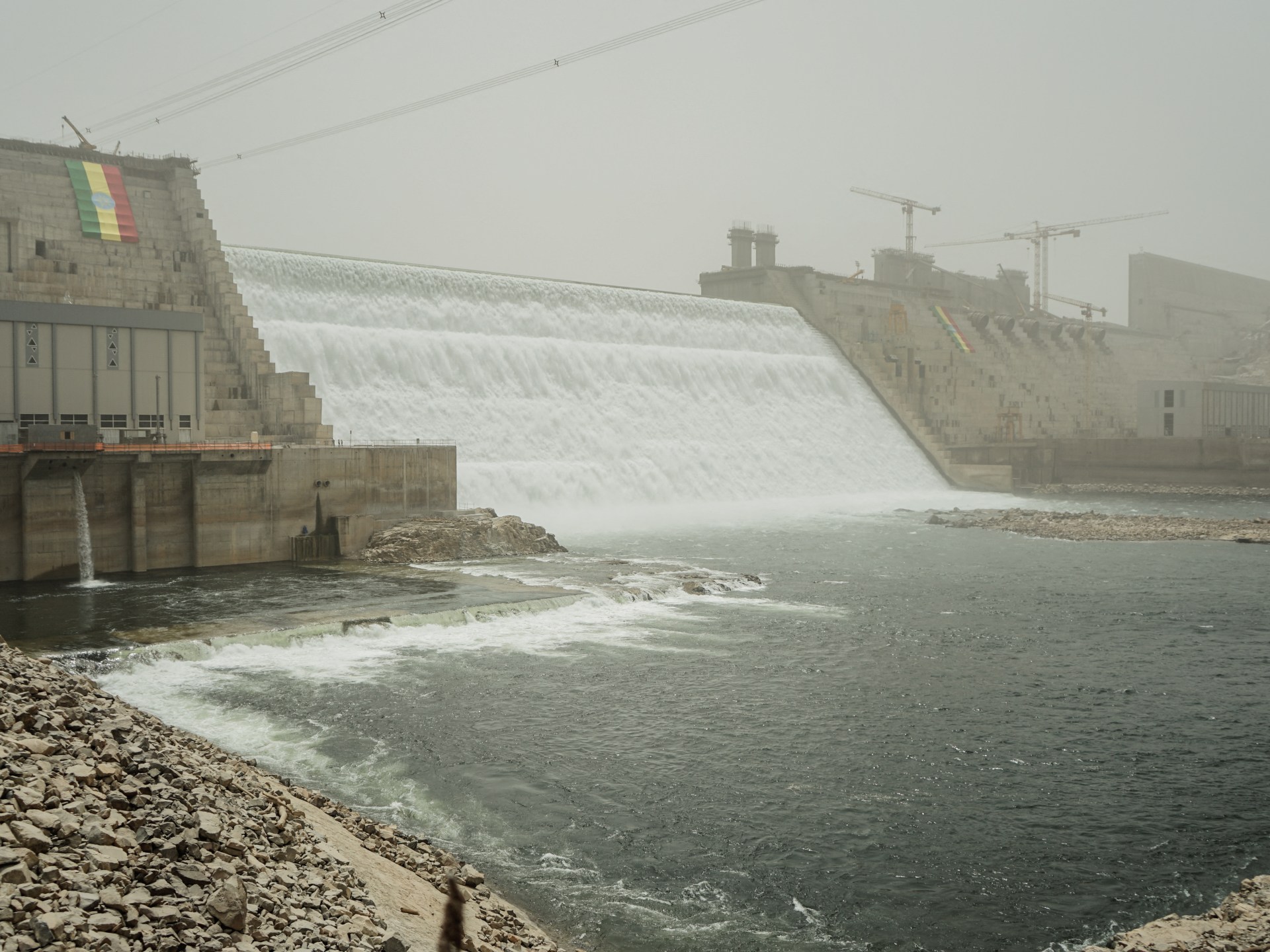The largest hydroelectric dam on the African continent, the Grand Ethiopian Renaissance Dam (GERD), will be inaugurated in a few weeks. This dam’s construction has taken almost ten years and cost nearly $5 billion. Ethiopia’s government and citizens used their meager internal resources to finance this country’s ambitious national project. This project received no funding from abroad.
Although there has been some international media coverage of the dam’s construction, Ethiopian perspectives have not been fully known in the media. This is merely a meager attempt to address the issue.
Ethiopians call the Blue Nile Abay, which is where the GERD is located. In a number of Ethiopian languages, abay means “big” or “major.” One of the main Nile River tributaries is called Abay. The river passes through ten other African nations, including Egypt, despite widespread belief that it is largely associated with Egypt. Ethiopia is one of these nations because Ethiopia’s highlands account for 86 percent of the Nile water that travels to Egypt.
The largest river in Ethiopia, Abay, has a great potential to promote socioeconomic development and transformation. Ethiopians have long wanted to make use of this resource. This vision is realized by the GERD, a national development project.
Ethiopia has yet to advance in its industrialization efforts despite its enormous labor force and potential. Ethiopia’s lack of energy has been a key hindrance in this effort. Only 55% of Ethiopians have access to electricity, according to the most recent statistics.
Ethiopia is in great need of electricity. The GERD is therefore viewed as our country’s escape from poverty and darkness. Ethiopia’s 130-million-strong population, which is projected to reach 200 million by 2050, should make use of this significant resource as a tool to spur growth and prosperity.
The GERD is anticipated to produce about 5, 150 megawatts of electricity per year, or 15, 760 gigawatt hours. This will transform our economy and transform our energy mix, making Ethiopia’s energy output double what it produces to light our homes as well as our cities and industries. Additionally, the GERD would encourage regional integration and interconnectivity by boosting our energy exports to neighboring nations.
The GERD would also benefit the Nile’s lower riparian states greatly from the fact that it would stop flooding, sedimentation, and water loss as a result. The water must flow to lower riparian countries after hitting the enormous turbines that generate the electricity because the GERD’s primary goal is to generate electricity. The river’s flow is not obstructed by the dam. This would render electricity generation impossible, which would defeat the dam’s original purpose.
You might wonder why some lower-riparian nations are upset about the dam’s construction. Their objections are not caused by reason or legitimate concern, but rather by reason. The objections are the result of a water-sharing deal signed by Britain and Egypt in the colonial era in 1929 and a derivative agreement signed by Egypt and Sudan in 1959.
None of these treaties included Ethiopia. Some Egyptians contend that all Nile riparian nations must adhere to the water-sharing principle enshrined in the colonial-era agreement, which forbids the remaining nine African countries from owning any portion of the Nile.
This anachronistic argument, frequently referred to as “historic rights over the Nile,” is unacceptable from the perspective of Ethiopians. Britain has no authority to dispose of the waters of the Nile or the Abay River, despite the fact that it has the right to enter into any agreements with the River Thames. As we all recall, late Egyptian President Gamal Abdel Nasser rejected British claims regarding the Suez Canal. Ethiopian leaders have consistently refuted claims that the country had no say in colonial affairs for much stronger reasons.
The Nile is viewed as a shared natural resource by Ethiopians. It should be used in a cooperative framework that benefits all riparian nations. All other countries’ aspirations and dreams about development are equally valid. Some people’s needs shouldn’t be prioritized over those of others.
It is necessary to create a fair, just, and inclusive framework that considers the realities of the twenty-first century. The Nile Basin Cooperative Framework Agreement, a contemporary, African-initiated treaty designed to promote sustainable management and equitable use of the Nile, is already in place in this way. Ethiopia, Burundi, Rwanda, Tanzania, Uganda, and South Sudan have already ratified and signed this agreement.
Egypt should join these Nile riparian nations in their collective effort to promote a fair and equitable use of the Nile in a sustainable manner by putting an end to the colonial era.
Source: Aljazeera

Leave a Reply